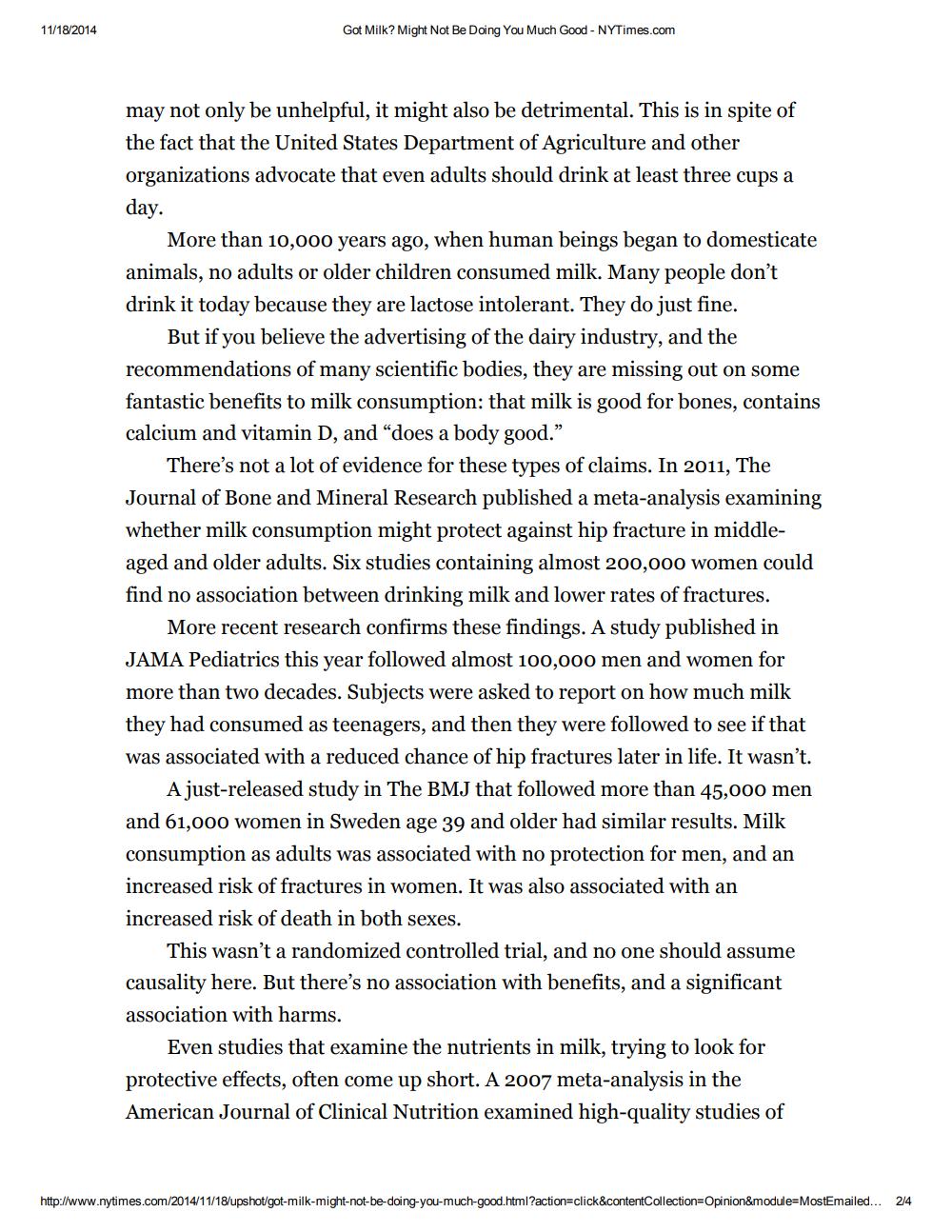Book Title: Got Milk Might Not Be Doing You Much Good Author(s): Aaron E Carroll, David Leonhardt Publisher: ZZZ Unknown View full book textPage 2
________________ 11/18/2014 Got Milk? Might Not Be Doing You Much Good - NYTimes.com may not only be unhelpful, it might also be detrimental. This is in spite of the fact that the United States Department of Agriculture and other organizations advocate that even adults should drink at least three cups a day. More than 10,000 years ago, when human beings began to domesticate animals, no adults or older children consumed milk. Many people don't drink it today because they are lactose intolerant. They do just fine. But if you believe the advertising of the dairy industry, and the recommendations of many scientific bodies, they are missing out on some fantastic benefits to milk consumption: that milk is good for bones, contains calcium and vitamin D, and does a body good.” There's not a lot of evidence for these types of claims. In 2011, The Journal of Bone and Mineral Research published a meta-analysis examining whether milk consumption might protect against hip fracture in middleaged and older adults. Six studies containing almost 200,000 women could find no association between drinking milk and lower rates of fractures. More recent research confirms these findings. A study published in JAMA Pediatrics this year followed almost 100,000 men and women for more than two decades. Subjects were asked to report on how much milk they had consumed as teenagers, and then they were followed to see if that was associated with a reduced chance of hip fractures later in life. It wasn't. A just-released study in The BMJ that followed more than 45,000 men and 61,000 women in Sweden age 39 and older had similar results. Milk consumption as adults was associated with no protection for men, and an increased risk of fractures in women. It was also associated with an increased risk of death in both sexes. This wasn't a randomized controlled trial, and no one should assume causality here. But there's no association with benefits, and a significant association with harms. Even studies that examine the nutrients in milk, trying to look for protective effects, often come up short. A 2007 meta-analysis in the American Journal of Clinical Nutrition examined high-quality studies of http://www.nytimes.com/2014/11/18/upshot/got-milk-might-not-be-doing-you-much-good.html?action=click&contentCollection=Opinion&module=MostEmailed... 24Page Navigation
1 2 3 4
